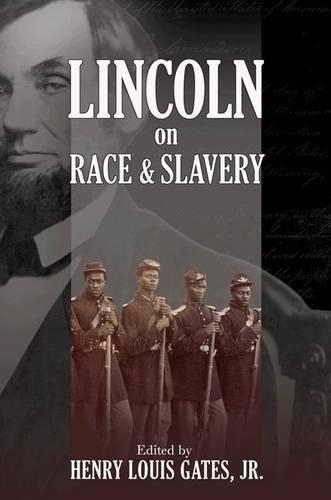
Lincoln on Race and Slavery
(Paperback)
Publishing Details
Lincoln on Race and Slavery
By (Author) Henry Louis Gates
Edited by Donald Yacovone
Princeton University Press
Princeton University Press
7th June 2011
United States
Classifications
Tertiary Education
Non Fiction
Civil wars
Early modern warfare (including gunpowder warfare)
Ethnic groups and multicultural studies
973.7092
Physical Properties
Paperback
416
Width 152mm, Height 229mm
567g
Description
Generations of Americans have debated the meaning of Abraham Lincoln's views on race and slavery. He issued the Emancipation Proclamation and supported a constitutional amendment to outlaw slavery, yet he also harbored grave doubts about the intellectual capacity of African Americans, publicly used the n-word until at least 1862, and favored permanent racial segregation. In this book--the first complete collection of Lincoln's important writings on both race and slavery--readers can explore these contradictions through Lincoln's own words. Acclaimed Harvard scholar and documentary filmmaker Henry Louis Gates, Jr., presents the full range of Lincoln's views, gathered from his private letters, speeches, official documents, and even race jokes, arranged chronologically from the late 1830s to the 1860s. Complete with definitive texts, rich historical notes, and an original introduction by Henry Louis Gates, Jr., this book charts the progress of a war within Lincoln himself. We witness his struggles with conflicting aims and ideas--a hatred of slavery and a belief in the political equality of all men, but also anti-black prejudices and a determination to preserve the Union even at the cost of preserving slavery. We also watch the evolution of his racial views, especially in reaction to the heroic fighting of black Union troops. At turns inspiring and disturbing, Lincoln on Race and Slavery is indispensable for understanding what Lincoln's views meant for his generation--and what they mean for our own.
Reviews
"Gates dispenses his lessons respectably. For the most part, he places Lincoln correctly in these different groups and along these different measures, even though it requires conceding that Lincoln fell far short of our own conceptions of justice and humanity. Amid the current bicentennial emoting, it is refreshing to read an evaluation of Lincoln that refuses, as Gates writes, to 'romanticize him as the first American president completely to transcend race and racism.'"--Sean Wilentz, New Republic "Abraham Lincoln is the most analyzed and written about human being in the history of the United States. In the last two years, more than a dozen works have appeared investigating his actions, attitudes, and speeches. Only a very brave or very foolish person, therefore, would attempt another volume on 'Old Abe.' Fortunately, Henry Louis Gates Jr. and his coeditor, Donald Yacovone, are the former rather than the latter, and their book, Lincoln on Race and Slavery will be an honored addition to libraries of historians and general readers alike."--Martin Hardeman, H-Net Reviews
Author Bio
Henry Louis Gates, Jr., is the Alphonse Fletcher University Professor and director of the W.E.B. Du Bois Institute for African and African American Research at Harvard University. Donald Yacovone has written and edited a number of books, including "Freedom's Journey: African American Voices of the Civil War".
